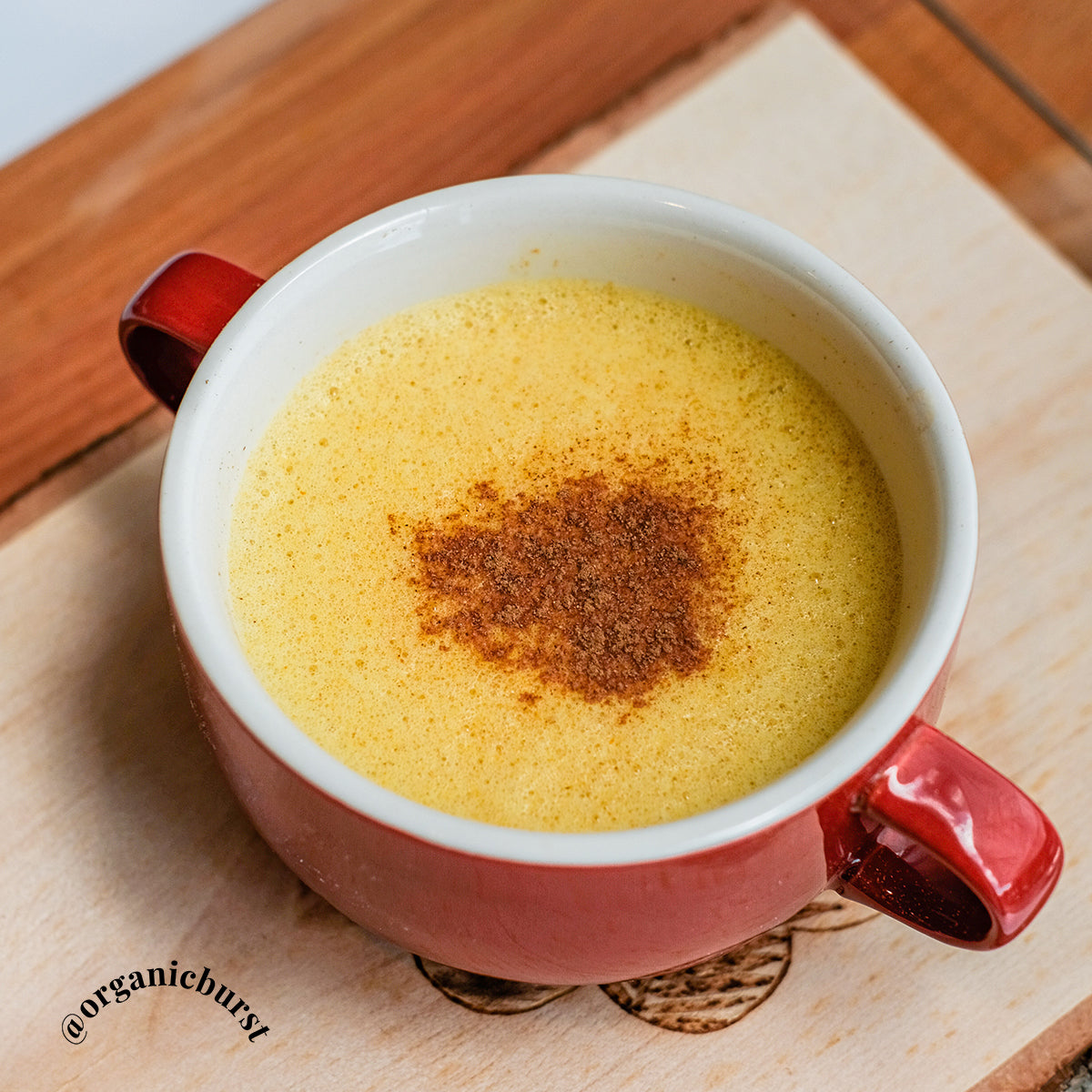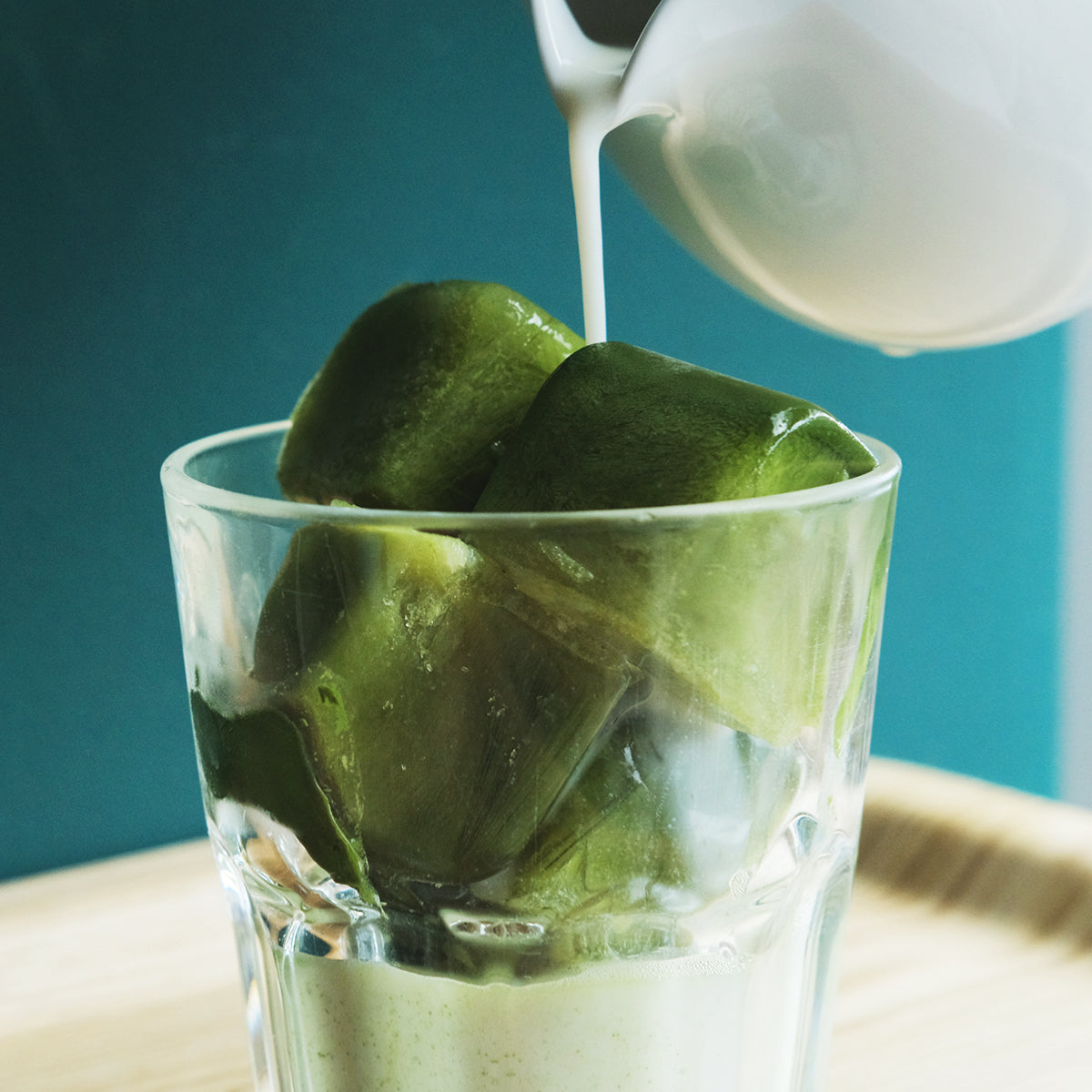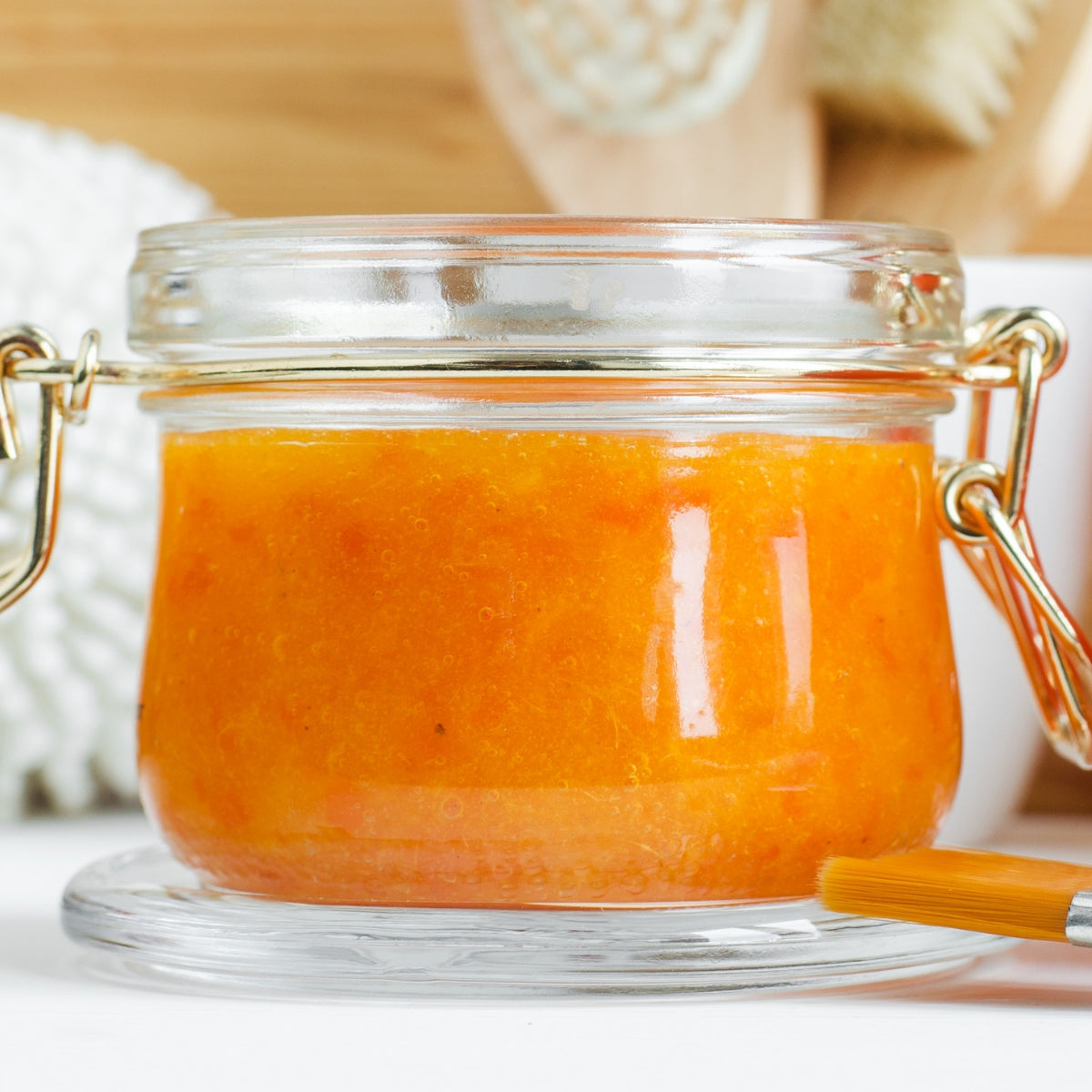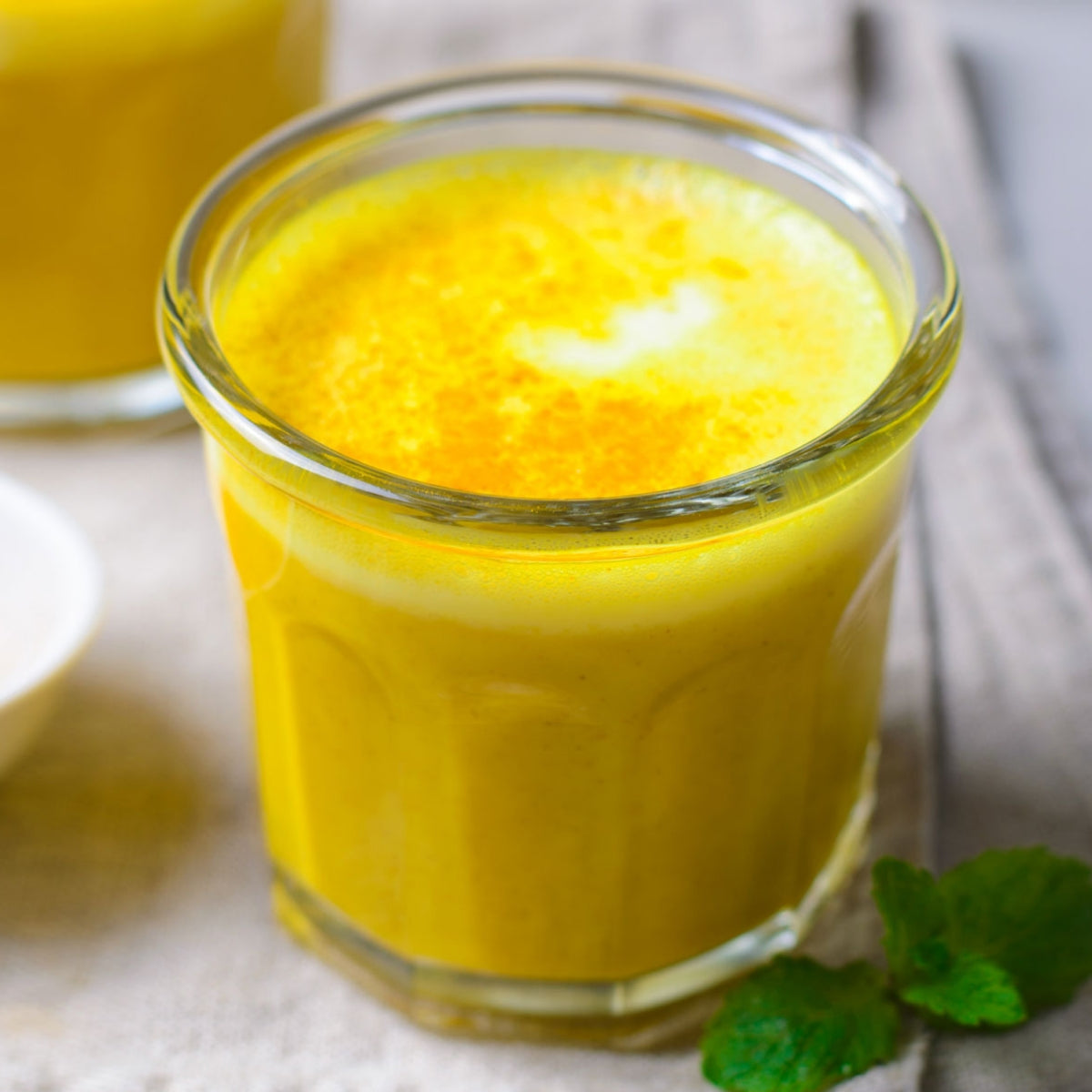Resist wrinkles, bounce with energy and support your whole body with Vitamin C.
- Find out the vital benefits of Vitamin C (it’s not just for your immune system)
- Why it’s easy to get depleted despite eating well
- Discover the truth about common Vitamin C tablets
- Eat these surprising sources of Vitamin C

Vitamin C Facts
We cannot make Vitamin C in our bodies (unlike other animals) so it’s essential to get a supply from food every single day.
Lots of us know already that it’s important to eat fresh foods every day to avoid getting ill, but this incredible vitamin does much much more!
Here are some more facts that may surprise you:
- Historically, sailors would get the Vitamin C deficiency disease scurvy due to eating no fresh food for weeks.
- Vitamin C deficiency symptoms include dry hair, skin that’s dry, slow to heal and bruises easily, gum problems, nose bleeds, susceptibility to infections.
- Most animals can make their own Vitamin C, except for guinea pigs, humans and primates. (Sadly this is why guinea pigs are used in so much animal testing.)
- Vitamin C is known as ascorbic acid, which is the form that Vitamin C tablets contain. However in reality ascorbic acid is not Vitamin C, it is only one of components of the real natural Vitamin C.
- It is the most searched vitamin on the internet.
You Need Vitamin C To Live
So what does this famous vitamin actually do? Vitamin C is involved in enzyme reactions within our cells, the metabolism – making energy, converting important proteins, and protecting you from the infections and pollution.
Here are some of the actions that this hardworking vitamin performs in our bodies:
- Cell protector! Vitamin C is a powerful antioxidant, meaning it protects the cells against damage from free radicals – caused by toxins and the body’s own processes. It is so powerful that it even helps recycle other antioxidants including Vitamin E when they get used up. The antioxidant activity has a positive effect on blood vessels, cholesterol and the entire health of the heart.
- Creating collagen in our bodies. Collagen is the protein in our skin and tissue matrix that holds things together, so when it’s in good supply, you’ll get fewer wrinkles, have better joint health and heal faster from bumps and bruises.
- Supports the immune system. Studies have shown it reduces the risk of catching a common cold and the duration of the cold, plus offers protection against other infections. The immune support also means that Vitamin C can be helpful if you’re suffering from allergies, asthma and autoimmune disease.
- Helps your body create energy in the cells because it is essential for the production of carnitine - the amino acid that makes you burn fat for energy. Helps the absorption of iron from your digestive system, which can also increase your energy levels.
Vitamin C is vital for producing collagen in your body – the anti-wrinkle protein!
>> Read on to find out why your Vitamin C might be low and the truth about vitamin tablets...
How To Get More Vitamin C In Your Diet
We always associate Vitamin C with oranges and other citrus fruits, but there are many more fantastic sources:
- Broccoli
- Leafy green vegetables like spinach, chard and kale
- Cauliflower
- Red bell peppers
- Brussels sprouts
- Sweet potatoes
- Papaya
- Strawberries
- Oranges, lemons and limes
- Kiwi Organic
- Organic Burst Baobab – it’s the pure fruit powder from the baobab tree, which contains Vitamin C and an array of minerals and antioxidants.
Eat 3-4 servings of these foods throughout the day, and remember that most fresh produce contains a little Vitamin C - even boring old potatoes contain it!
C&J Tip: You can add 1tbsp Organic Burst Baobab to a 1liter bottle of water, shake it up and drink through the day for a steady supply of natural Vitamin C as and when you need it.
What’s Stopping You Getting Enough?
Being a water-soluble vitamin, C doesn’t stick around in our bodies for very long. It’s generally understood that we cannot store it, with only small reserves available in our tissues. This is why we need to replenish regularly, every few hours ideally.
- When we eat low-nutrient, processed food, our body’s metabolic processes (how we convert food to energy) use up extra supplies of vitamins and minerals to compensate.
- Living a stressful life uses up more of your Vitamin C supply because the adrenal glands use it to make stress hormones. So if you’re doing exams, moving house, work out strenuously, not sleeping well, or have any other stress in your life, you’ll need extra C.
- Drinking tea, coffee, alcohol and taking diuretic medications stimulates the body to lose more fluid, and Vitamin C is lost along with the water in your urine.
- Smoke from cigarettes and pollution, or any other environmental exposure to fumes and chemicals uses up Vitamin C in your body because it is your body’s ‘go-to’ antioxidant – the perfect compound for stopping free radicals damaging your body’s cells.
- Cooking food at high temperatures reduces the Vitamin C content. Boiling is the worst because the vitamin leaches into the water and we throw it away. Try gentler processes like steaming, dehydrating, or eating more of your vegetables raw. Soups and stews made in the slow cooker are great too, because the vitamins stay in the pot and don’t get drained away!
- Eating imported food. Vitamin C degrades in fresh food over time, it’s best to eat the freshest fruit and vegetables you can find, which normally means eating from local suppliers and farmers markets. Food that has travelled longer distances is likely to be older and its nutrient status will have deteriorated.
Stress, pollution, cigarette smoke and drinking tea and coffee reduce your levels of Vitamin C.
Should I Take A Vitamin Tablet?
What we need to remember is that there’s no such thing as a Vitamin C tree! This means that isolated single nutrients, as you might find in a tablet, are not a normal way to eat.
The truth about Vitamin C tablets:
Here are the vital facts you need to know about synthetic Vitamin C (ascorbic acid) that is present in vitamin pills and added to foods as a preservative:
- It is not found anywhere in nature, it’s made in a lab.
- Although it is chemically similar to real Vitamin C, synthetic ascorbic acid is lacking in all of these other important factors that are found in true Vitamin C:
- Rutin
- Bioflavonoids (Vitamin P)
- Factor K
- Factor J
- Factor P
- Tyrosinase
- Ascorbinogen
- Synthetic ascorbic acid kills bacteria, which is why it is used as a preservative in foods and juices, however, this fake version also kills your beneficial microbes – so it’s not great for your immune system overall!
- Manmade Vitamin C is synthesized from corn syrup, which most health-conscious folks avidly avoid because of the potential risks of genetically modified corn.
- Taking a large dose of ascorbic acid can reduce our copper levels.
Ascorbic acid is not real Vitamin C! Natural Vitamin C is a complex of over 7 different elements.
If possible, it’s preferable to eat nutrients in their natural format that the body recognises. Natural foods contain everything your body needs to digest, absorb and use the goodness they offer – i.e. the vitamin and minerals are packaged up in combinations that work synergistically for a much better result.
Wherever Vitamin C is found in nature, there are also substances called bioflavonoids. They’re found in the white pith that surrounds an orange, and the fibres of all Vit C-rich foods. They have been shown to help the action of Vitamin C, particularly in strengthening blood vessels – perfect if you’re prone to bruising or have heart disease in your family.
Unlike a Vitamin C tablet that’s mainly ascorbic acid, natural sources including Organic Burst Baobab also contain alkalising minerals such as magnesium and calcium to counteract the acid of the Vitamin C, so you don’t get out of balance.
Baobab fruit powder is a natural source of Vitamin C, that contains minerals to balance out the acid.
Expensive Vitamin C ‘ester’ tablets give a timed release, using compounds to slow down the absorption. In effect, these tablets simply make digestion hard work.
Rather than risking exposure to additives, sugars and other processing agents that are used in commercial vitamin tablets, it’s great to regularly top up with nutrient dense foods throughout the day.
Tips To Top Up Vitamin C Through The Day
- Eat a portion of papaya sprinkled with lime juice first thing in the morning (this will also kick-start your digestive system).
- Add 1tsp Organic Burst Wheatgrass, that contains Vitamin C, Vitamin A, potassium and fibre to your breakfast smoothie.
- Squeeze the juice of ¼ lemon into water or your green tea mid-morning.
- Include veggies like leafy greens, red pepper and cauliflower in your lunchtime salad.
- Add 1tsp Organic Burst Baobab to your water bottle at the gym.
- Order a side dish of steamed spinach or broccoli when eating out.
Enjoy your newfound energy and lovely skin!














